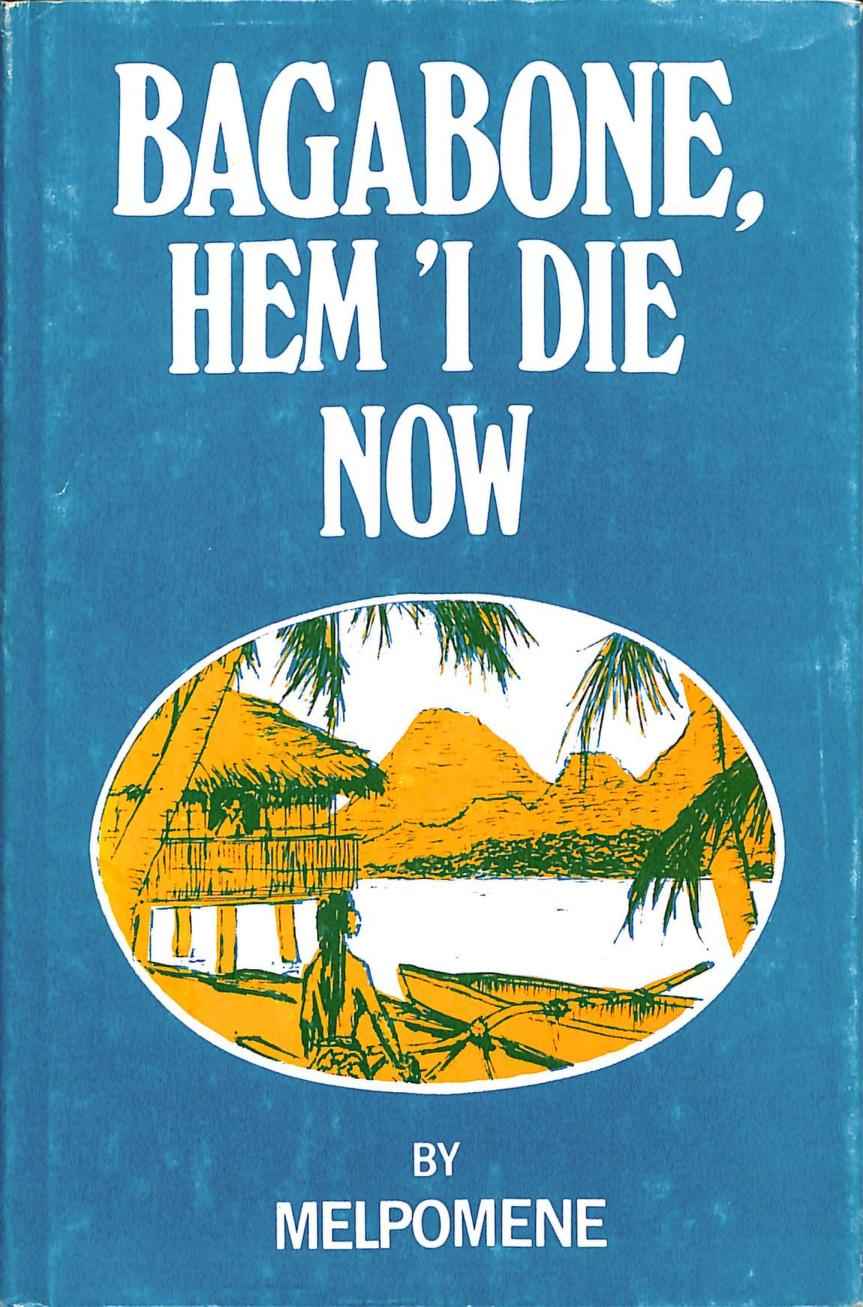
Melpomene, Bagabone, Hem ‘I Die Now, Vantage Press, 1980.
“Bagabone, Hem ‘I Die Now (1980) is perhaps the first novel that was purportedly written by a computer.
The back flap of the dust jacket states this about the book’s origins: “Can a computer write a novel? To find out, some experts in literature, linguistics, and computers at the Institute of Science and Technology, Jagiellonian University, Krakow, programed a computer, Melpomene, with English verb patterns and semantic (i.e., meaning) units drawn from twentieth-century women writers, as well as D.H. Lawrence, James Joyce, and some ‘angry young men’ of the 1960s. Then they added some patterns and units from Pidgin English and French, and the astounding result is Bagabone, Hem ‘I Die Now. Melpomene, which is the name of the Greek muse of tragedy, picked the title; translated from Pidgin English, it means, ‘Bagabone (a character in the novel) is dying.'”
Following its publication, Computer World published an article (“Publisher Claims Computer Composed Novel”, 25 Aug. 1980, p. 23) effectively defeating the publisher’s claim about the work’s computational origins. In the article, AI experts deem the novel to be human-written, and another source reports that there is no ‘Institute of Science and Technology’ at Jagiellonian University. Moreover, due to its mode of operation, the publisher (Vantage Press) would apparently have been paid to print the book. The copyright holder for Bagabone was a human—an Englishman named G.E. Hughes—who could not be reached by Computer World. (Intriguingly, this copy of the book is inscribed by one ‘Eric Hughes’, though this could be coincidental.)”
Publisher Vantage Press, New York, 1980
via James Ryan (xfoml)
PDF (40 MB)
Internet Archive

No comments:
Post a Comment
Note: Only a member of this blog may post a comment.